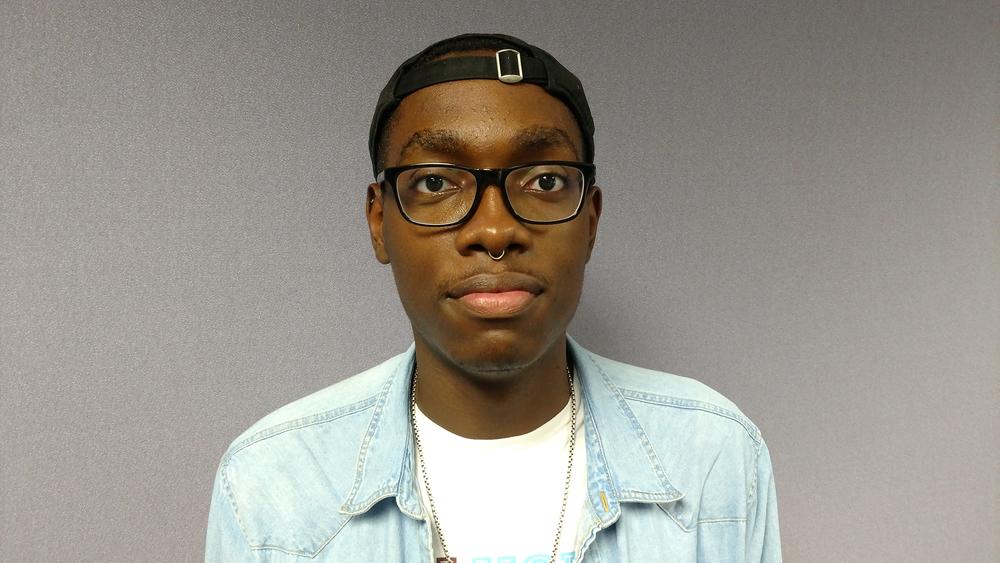Section Branding
Header Content
Commentary: HIV Tried Me. It Lost
Primary Content
This year marks 30 years since the Food and Drug Administration approved AZT, a drug to combat HIV and AIDS. The Atlanta metro area has one of the highest rates in the nation of new HIV diagnoses. In a commentary originally written for Vox Teen Communications, Kaleb Anderson, 19, of Atlanta wrote about how he learned of his HIV diagnosis shortly before starting college.
I remember the day I found out. My mom quivered over the phone. She said: The pediatrician wants you to come to the office immediately. My stomach felt like it was being flushed down the toilet.
I’d had a routine physical the week before. The doctor noticed swollen lymph nodes around my neck and in my groin area. I felt dizzy after standing up for more than 30 seconds.
We returned to the doctor’s office after the call back. Changing in front on my mother that day seemed worse than any other day. First my hat, shirt, pants, then underwear — every layer making me more vulnerable and accountable for whatever the news would be.
I could see my mother and even my doctor too were on the edge of erupting with emotion. I was forced to be strong for them. And tears? Who has time for that.
The doctor said my test came back positive for HIV.
My mother broke into tears. Everything felt colder and I couldn’t move, not even my face. My mind sped back to those nights of lust. I remembered every house, hotel and every condo I had visited during the past two years. I had been trying to cope with my actions without being accountable for them. Now, I couldn’t escape. That realization numbed me. Remembering every man I gave my body to consolidated my stillness.
I was diagnosed less than two months before I was set to start college. Large doses of penicillin made it hard to eat. It felt like someone was inside of me pushing the food back up. I thought: giving up and dying from this stigmatized virus would be easier than waking up each day to fight for my life.
My mother stayed with me in the hospital for a week. Then, she supported me through two weeks of home treatment. Her support inspired me to get better for my loved ones, even if I didn’t feel worthy of living anymore.
Two months later, I arrived to campus as a college freshman. I was 50 pounds heavier, with a 90-day prescription of meds, and a lot of angst. I had to remember to take the medicine keeping me alive. I also had to make sure every meal was balanced and that I exercised regularly. This seemed tedious on top of adjusting to school, with its predominantly white spaces, rigorous courses, and a suffocating, new social environment. I was afraid to take my medicine at dinner, because I knew my friends would question me. Most of them were black. I was aware of the stigma and stereotypes thrown on those in our community living with HIV. I’m gay, and HIV positive. I knew my identity as a black man would be under attack. So, I struggled with being my authentic self in the first few months of college.
But the more I accepted myself and my health improved, I started feeling comfortable taking my pills in front of my friends. One night at my crew’s normal 7 o’clock dinner, someone new came and sat with us. I took my pill out, ready to take it. The new girl asked: “What do you take medicine for, Kaleb?”
I told her, I have HIV. And I swallowed the stigma along with my pill. I was finally able to open up to my friends, and I found support among them.
The presidential election was a wake-up call. I realized I needed to be strong not just for myself, but for all people of color. I started hosting workshops on sex positivity and healthy relationships. I also decided to run for a seat on student government. Other students of color were mobilizing, too. We collaborated to reach voters and get people out to debates.
That’s how we made history. People of color are now in the majority of our executive board for student government.
My story is one of redemption and victory, not shame. I went into college thinking I’d be dead by the end of my first semester. And I still wake up every day reminding myself: I’m worthy of living. And so are you.

